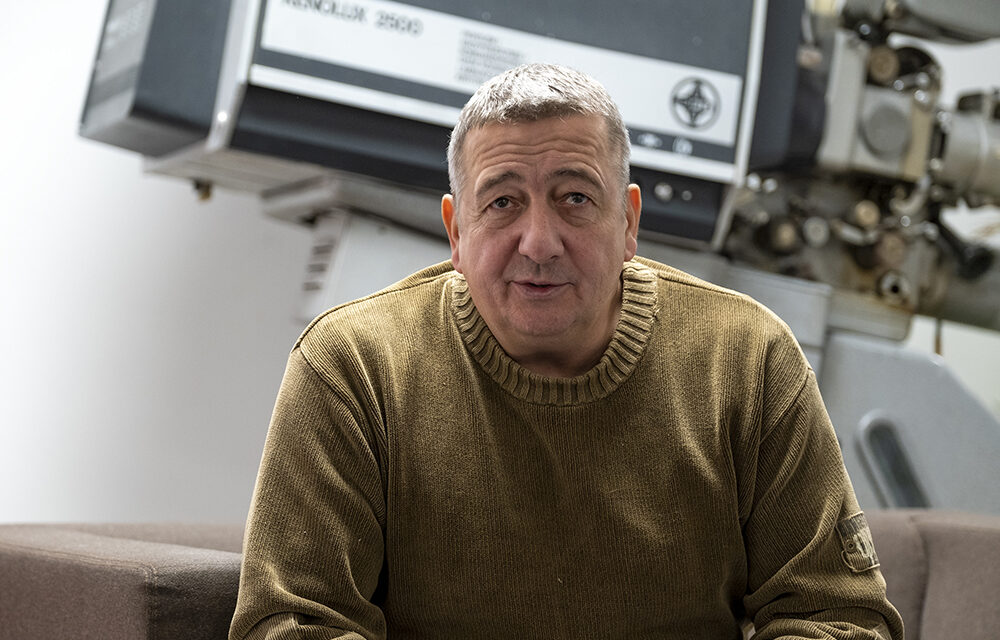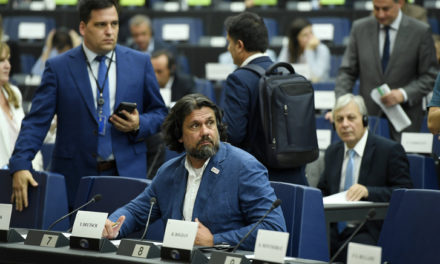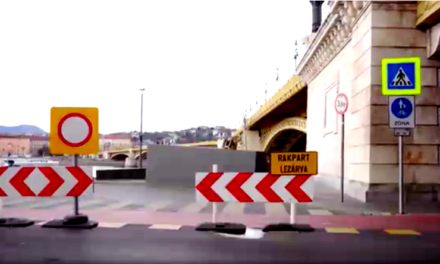"This union, if everything remains as it is now, will fall apart in a very short time. Nothing to hold it together. And the fact that Central Europe has been standing here on the path of wars for a thousand years is, on the one hand, a great danger, and on the other, a huge opportunity."
We talked with Zsolt Bayer about the Russian people's soul, Hungarian public discourse, the mass graves lying in the footsteps of great ideologies and who would take up arms if called home. Interview by Szilvia Polgári.
You are known to be a divisive personality, most of the accusations you received were for destroying the public discourse. What do you think, would the Bayer brand work even if you were a good guy from tomorrow, if you didn't always put on the gloves? Would it fit?
I think we are over that. Whether it would fit or not. It's like that. Unfortunately. At the very least, I try to make sure that there is no rude speech in the mainstream media, for example at Magyar Nemzet. It happens on my blog, obviously, when they upset me. But I'll say it again, we're beyond that, anyway
we are talking about a pseudo-debate, which is being stirred up by those who, for the last 5-6 years, have built their entire political credo on O1G.
They have nothing more important to say politically. And they give a standing ovation to the children who say absolutely amazing things at various demonstrations. They applaud what courage and freedom they have, and then they point at us with a raised index finger accusingly of how badly we speak. I'm over it and I don't care.
Do you have to adjust the standard to them?
No, it's not an adjustment to them, it's obviously a matter of temperament. It would be better if I wasn't like this, but sometimes, unfortunately, I can't help myself.
But there is also another Zsolt Bayer who went to the Russian Far East, went to Transylvania, wrote The Fairy Cemetery, and recently immersed himself in the science of forest and wildlife management. In the summer of 2005, you filmed in Siberia for two months, and you received the Knight's Cross partly for this series. 18 years from now, how do you remember the story you started then: "There are paths you prepare for your whole life if you are foolish enough. Crazy enough, curious enough, and if you're scared enough.”?
It was one of the defining journeys and experiences of my life, in all aspects. And not only because along the Kolima I came to quite shocking camps, where even the tools were lying on the ground. When Khrushchev announced the end of the Gulag, people were told to go wherever they wanted. They threw away their tools and went off into nowhere, but the site remained untouched ever since. It was unforgettable and heart-wrenching.
Why Siberia?
I was always attracted, I always wanted to see, for me Russia was a big mystery. This is an amazing duality in me. Obviously, as a citizen of an occupied country, moreover, the child of a family that was repeatedly destroyed, displaced, and deprived of its wealth, I hated the system, I hated the Soviet Union, which represented its alpha and omega, but at the same time I was a fan of Russian literature and cinematography.
So I wanted to see what the place could be like, where Soviet officers in bowler hats, who came and went with us, and the greats of Russian literature were born at the same time.
Where Nikita Khrushchev co-existed with filmmakers such as Tarkovsky. It was some kind of weird dissonance that I wanted to watch since I was young.
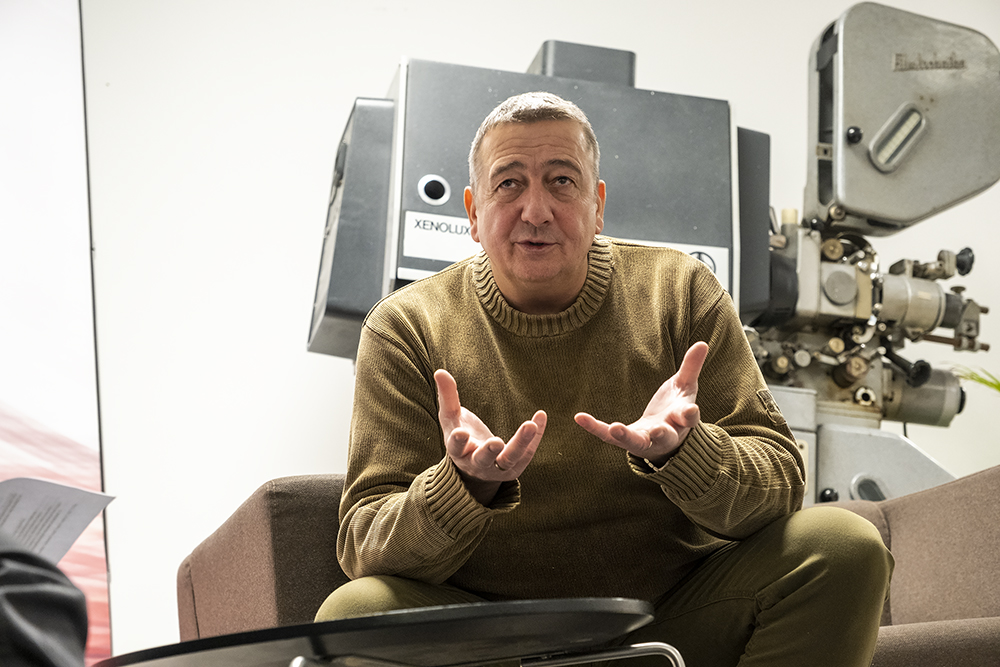
Photo: CÖF/Péter Mészáros
Even if you don't know what 10,000 kilometers means, it's another thing to see it. How did you live these distances? Did you travel with the Trans-Siberian Express?
Also, among other things. It all started when we attacked Russia from behind, flew from Alaska to Kamchatka, and from there began this incredible journey to Moscow. It included a domestic flight, the Trans-Siberian Express, a car - we went with everything. It was a separate logistics to organize to get from A to B. And there, what an English politician once said, that "Russia is immeasurable by reason, incomprehensible by reason" really becomes a tangible reality there; the Russian Far East, where there are a total of two cities that already existed in Tsarist times, Vladivostok and Irkutsk, all the others are already a product of the Soviet Union.
Vladivostok train station is beautiful.
Yes, because the Stalins bulldozed the city and then erected wonderful housing estates in its place, but then Putin rebuilt the entire tsarist Vladivostok, stone by stone. The duality was palpable there as well, for example during a Sunday shoot, when a young couple and the wedding party came out of the beautiful Orthodox church above Tsar Alexander's staircase. And they took the first obligatory photo at the church, the second under the triumphal arch, then they came down the stairs, where there was a statue of Lenin of merciless size, and shot the third picture there. I asked you to tell me how it is? How in the church, and at the feet of Comrade Lenin? But they didn't understand the question, they said "this is our world".
How can they live with this duality?
Because of the imperial consciousness. In my opinion, the soul of the Russian people is otherwise very similar to ours, because they are also a kind of gloomy, cheerful people, with one huge difference: they have an imperial consciousness. They have always seen themselves as an empire, with all its curses and blessings.
For them, the tsarist empire and the Soviet empire are a matter of legal continuity, it is enough to think that Lenin's mummy is still displayed in a mausoleum like a pharaoh's.
So, in some way, the tsar father and the party general secretary enjoy legal continuity in the Russian soul.
You also went to the Butugicsak death camp above 1000 meters, about which you wrote that "they forgot to tell me that there is a way up to hell". How was it different from, say, Auschwitz? Was there a difference between the two hells on earth?
Nothing. Anyway, this is a big question for me, what is the difference for others, but I have never received an answer to it from neo-Marxists or liberals, or from those Western intellectuals who still deify communism as an idea, saying that it is the most beautiful idea in the world , they just messed it up on the way, but we'll do it right one day. Marx's own articles can be read in the Black Book of Communism, where he discusses, for example, that even the Irish core of the peasantry of the Swiss cantons should be exterminated, because these traditionalist peasants who stick to their traditions are much worse than the dukes and counts. And there will only be a beautiful new world if we wipe them all out.
But I never get an answer to the one question that the XX. What is the difference between the mass graves of the two horrors of the 20th century, Nazism and Communism - according to one, groups of people must be exterminated on the basis of race, the other according to class, in order to make life wonderful?
From the victim's point of view, does it matter whether they are exterminated because they are Jews or because they are kulaks?
It does not matter. But if nothing else, there is still a difference in the number of victims - not that the war of numbers is tasteful - the Nazis murdered 6 million people, we talk about it a lot, very correctly, the communists also had 100 million - we hardly talked about this, recently - as possible.
That's right, and it's beyond comprehension. To deny one ideology, to hide graves, to look away, to excuse it, to point the finger at the other ideology, this is quite simply nonsense. And a dead end too.
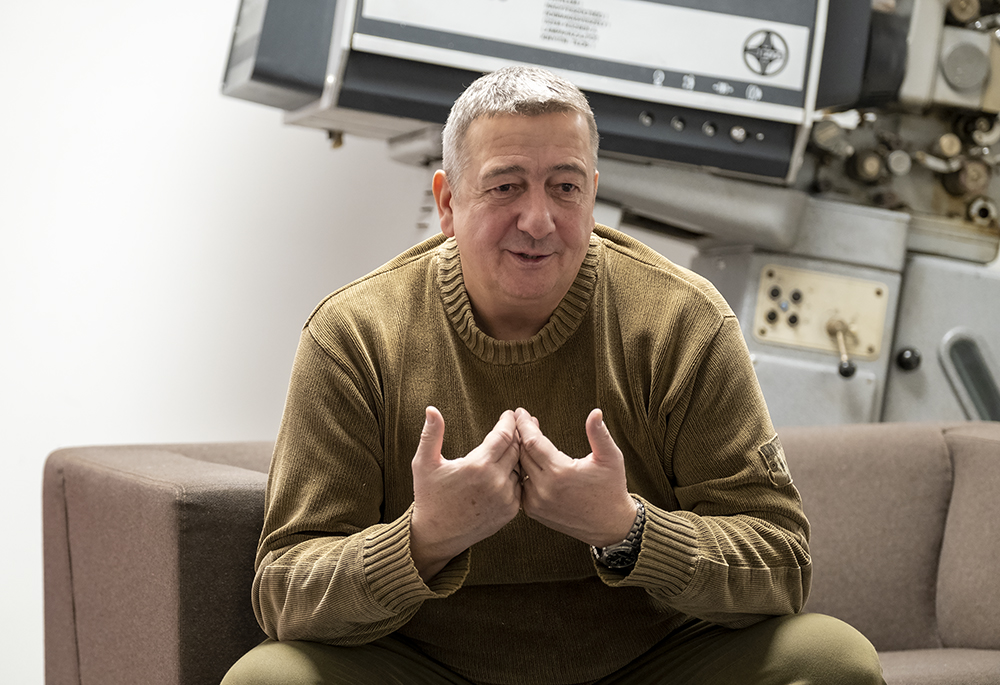
Photo: CÖF/Péter Mészáros
Is the dividing line sharp between the areas east and west of the Urals?
Yes, quite a bit. The nature in the Russian Far East is beautiful, breathtaking, in my opinion one of the most beautiful landscapes in the world, but 18 years ago Irkutsk was not one of the fantastic places. However, Moscow and St. Petersburg do. Amazing and fascinating cities.
I recently saw a photo collage that showed subway stations in Moscow and New York.
It's nice of you to say, I also posted it on my blog, and it really says everything there is to know about this topic. You can choose where you would prefer to get on and which train.
In Ola, you wrote that "when life is a fish soup, life is very deep". Roughly 40 million people live east of the Urals, do you think today's EU sanctions will break the spirit of a Tungus fisherman?
Come on! The mellow Western man, if he doesn't have a soy-free latte for breakfast, collapses. What about a Russian who lives, say, in Yakutsk, at minus sixty degrees?
Are you saying he won't miss the power steering?
Well no.
Hungary is located on the border between east and west, which is favorable in peacetime, but less favorable in the event of a blockade. In many of your writings and speeches, you have advocated leaving the European Union. A decision from Brussels is truly outrageous, but after a sober consideration, shouldn't one always choose the lesser evil?
Yes. Apparently, anger speaks to me. Because what Brussels allows itself, especially in recent times, is so blood-curdling that... if nothing else, it is enough to think about their latest move, the Erasmus case. So in comparison, Gorbachev's Soviet Union was a particularly fun place, I mean what they did to us at the time. That being said, I'm still inclined to say you shouldn't quit. Of course, you can think about this every day, you can list pro and con arguments, but I am sure that the moment has not yet come. In fact, I don't think there will be such a moment.
This union, if things remain as they are now, will fall apart in a very short time. Nothing to hold it together.
And the fact that Central Europe has been on the path to war for a thousand years is, on the one hand, a great danger, and on the other, a huge opportunity. It would be good if we saw the enormous opportunity in it, and if the brilliant West would leave this to us, which would also do well if it left the Eurasian trade and economic union. But he won't let it, because the interests of the United States are exactly opposite. Unfortunately, today the leaders of the European Union are either bought by the pound or can't see beyond their noses. That's the situation.
A few years ago, there could have been a break along a vertical axis between the eastern and western half of the union, but the war also overrode this, given the position of the Poles and the Baltic states.
Obviously, not a single Hungarian is a fan of the Russians because of the memory of the Soviet Union.
Rather, we are not fans of empires.
Yes, that's right. The Poles, on the other hand, have a harder time getting over the fact that they have practically disappeared from the map three times. I understand the Polish spirit, but less so that they are still able to support Ukraine without reservation, the country that still carries Bandera on its flags, who exterminated hundreds of thousands of Poles at the time. This is again a matter of people's spirit, I don't want to go into it too deeply, but it is certain that it cannot remain like this until the end of time, and on the other hand, Russia is not an empire that is used to losing its wars. So I think this will be over, if not very soon, but within a tight deadline. And it will end as the Russians want.
As the foreign minister said just the other day in Davos: "Russia is a reality".
So it will not be the case that there is no Russia.
Beyond a pandemic, in the neighborhood of a war that is escalating day by day, could anything happen that would detract from the unity of the nation? What would have to happen for a national minimum to be established?
That's a very good question, but I'm afraid it can't happen like that. To give a very extreme example, which I cannot substantiate, I just feel in my gut that if we were to be attacked by anyone today, they would effectively attack Hungary, then the government side would probably take up arms, me too, at the age of sixty, and we would go to defend our country.
They would go too. Point. The sentence would end here.
Yes, and from there, from abroad, I would start to explain what we are doing wrong. So I don't see the point where a national minimum could be created with these, because we see the world and all its existing segments completely differently at such a level and depth that there are hardly any bridges left. You can't say a single thing - family, nation, religion, Europe, future, past - not a single tiny slice of existence that we think the same about.
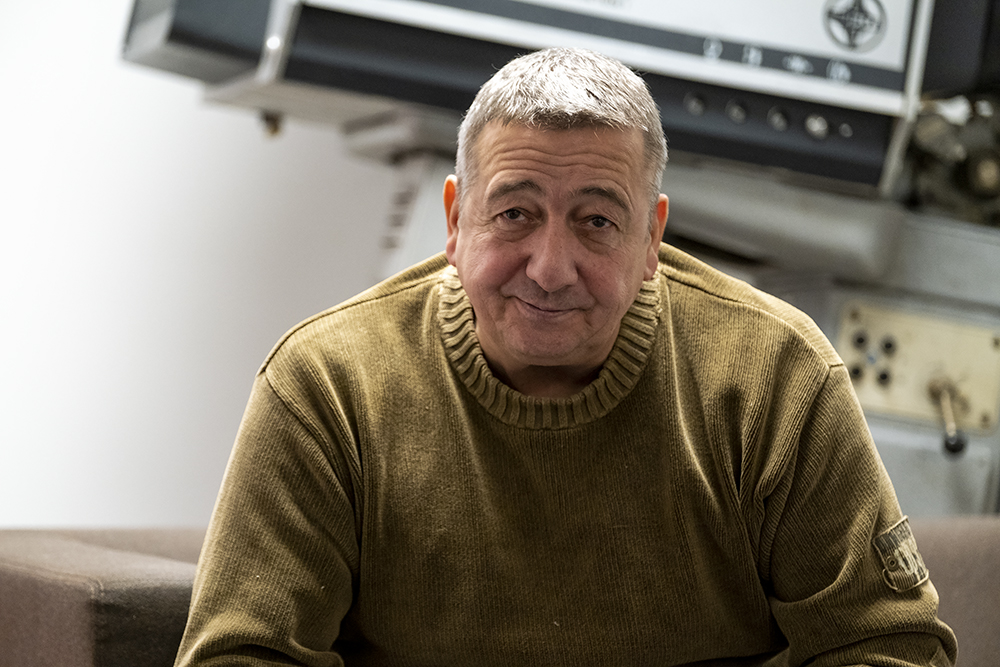
Photo: CÖF/Péter Mészáros
Under what conditions could a "party capable" opposition, which even Viktor Orbán himself desires, be able to stand up?
I don't see these conditions, I don't see any. There are people out there with whom, despite the fact that we think completely differently about the world, we can sit down and talk normally. If the opposition consisted entirely of András Schiffer, there would be no problem. I also always read Miklós Gáspár Tamás with great pleasure, because he represented an amazing quality and knowledge, I went crazy with his every thought, I climbed the wall with his entire Marxism, but at least he was somebody. What about those double zeros?
You often criticized the Ukrainian leadership, which is why you appeared on the nationalist portal Mirotvorec, referred to in some circles as the Ukrainian death list. Are not you afraid of?
No. But as I said then, this is how I reached the top. If I can be on the same death list with Nikita Mikhalkov, the director of The Barber of Siberia, my favorite director, where do I go from here?
Even if the world survives the Third World War, at the end of the fighting, a country that is too presumptuous or just too desperate, with still unknown borders, will remain here next to us, armed to the chin. How will this shape the future of Europe, including Hungary?
These are the creepiest questions. I deeply agree with my friend Laci Bogár that this is a proxy war that the United States is waging with the Russians, on Ukrainian territory, at the cost of Russian and Ukrainian blood. The Amcs have always been good at this, they love wars taking place thousands of kilometers from their borders, they profit from it. If nothing else, from the sale of weapons, and from the assistance, which they will then reap the benefits of. Victoria Nuland said, didn't she, that 5 billion dollars were spent on this revolution, and lest anyone think that the benefits are not reaped. The current American president still appoints his son as vice president - right after the Maidan - on the board of directors of the largest gas industry trust, Burisma, American companies are buying up the world's best and largest farmland, the famous chernozem, do I need to say anything more, Ildikó? – to quote a classic.
A proxy war is taking place, which says that the United States must destroy Europe in order to regain its hegemonic role.
This empire in decline - because Laci Bogár is right about this too, the warranty period of empires is roughly 100 years, so that of the United States is just about to expire - is now even acting on this in its decline and final kick. As for the European leadership, unfortunately, I will say it again, either it is taken or it is completely stupid.
Or both.
Or both. They don't see through it all. But the war will end sooner or later, and the win-win situation of the European Union and Russia trading peacefully will become impossible for a long time. The German chancellor himself stated recently that our prosperity based on endless amounts of cheap Russian raw materials is over.
And I understand, I understand that too, but tell me, who did you like to ask about this? Who cares if it's over but the Americans?
To no one. So we will remain here after the war with this burden, and with the American LNG gas, for billions, and here we will remain a Ukraine, armed to the chin, which still holds a significant number of Hungarians hostage; we know how they behaved with them even before the war, so here remains a semi-Nazi terrorist state, so God forbid that this does not cause any serious problems. But I'm not very optimistic.
Featured image: CÖF / Péter Mészáros

